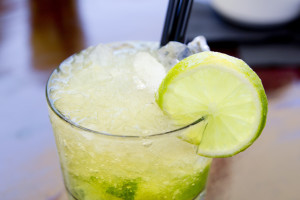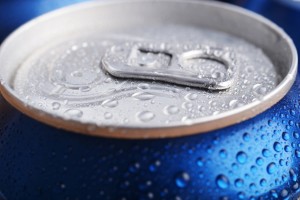Which is better for you: drinking regular sodas or diet sodas? As a dietitian, I get this question a lot from people.
We all know that regular sodas have more calories which can lead to unwanted weight gain. But we also know that diet sodas have artificial sweeteners, which some past studies have suggested can be harmful if you drink them in large amounts. Since there appears to be a concern, it’s a good idea to look into this question further. Are there real diet soda health risks, or are they indeed better than regular sodas?
No Real Harm
As far as diet sodas go, the Mayo Clinic states that if you drink 1-2 cans/day, there is likely no harm. There is no evidence through research that artificial sweeteners in diet sodas (ex. aspartame in Diet Coke, Diet Sprite) are harmful for most people, and there is no strong evidence that artificial sweeteners cause cancer. Diet sodas can offer a calorie-free beverage that can help with weight control. Diet sodas can also potentially benefit individuals who suffer from diabetes and who need to control their blood sugar levels, because they don’t raise the blood sugar levels. Furthermore, diet sodas don’t contribute to tooth decay or cavities. Lastly, diet sodas can add variety to a diet, and they are a reasonable source of hydration.
No Real Benefit, Either
Recently, though, data is emerging that drinking diet soda may not contribute to significant weight loss, and/or it may not prevent the onset of chronic illnesses like heart disease. A ‘con’ to drinking diet sodas is that they offer no nutritional or health benefits. It has been theorized by researchers from Purdue University that frequent consumption of artificial sweeteners can confuse our body’s ability to manage calories based on tasting a sweet beverage, so this could result in people eating too many sweet foods and then gaining weight. As far as research goes, studies aren’t just comparing diet soda vs. regular soda anymore; they are studying soda drinkers in general vs. non-soda drinkers.
The Best Option
Your best bet for low calorie beverages include:
- water
- unsweetened coffee
- unsweetened tea
- 1% or skim milk
- 100% fruit and vegetable juices preferably diluted with water
If you are looking for that fizzy taste, try adding carbonated mineral water to your drink. If you are looking for a sweeter drink, try adding a little stevia extract to your beverage.
Avoiding too much in the way of sugar will help you prevent or manage diabetes

